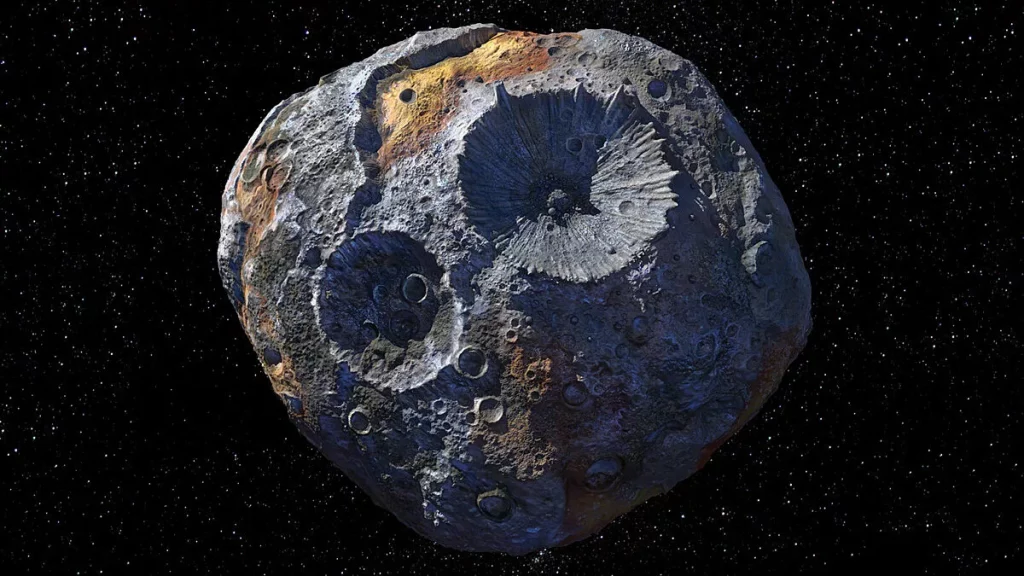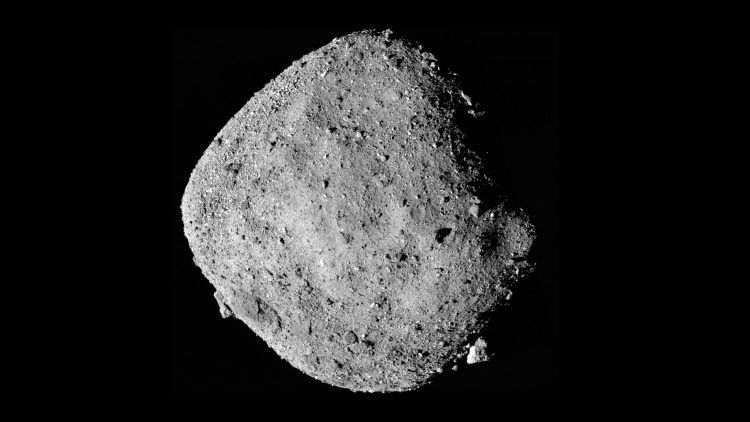Introduction
Asteroid Bennu, a near-Earth asteroid with a diameter of about 500 meters, has captivated scientists and space enthusiasts alike with its intriguing characteristics and potential implications for planetary science. Discovered through advanced astronomical observations, Bennu has been the focus of extensive research and exploration, notably through NASA’s OSIRIS-REx mission. This article provides a detailed exploration of Asteroid Bennu, including its discovery, scientific significance, exploration missions, and the broader impact on our understanding of the solar system.
Discovery and Observational History
Asteroid Bennu was discovered on September 11, 1999, by the Lincoln Near-Earth Asteroid Research (LINEAR) program. The asteroid’s discovery was a result of a concerted effort to identify and track near-Earth objects (NEOs) that might pose a potential hazard to Earth. Bennu’s relatively close proximity to Earth and its size made it a prime candidate for further study.
- Initial Observations: Initial observations of Bennu indicated that it was a carbonaceous asteroid, a type that contains a significant amount of carbon compounds. This classification suggested that Bennu could provide valuable insights into the early solar system and the building blocks of life.
- Tracking and Characterization: Over the years, astronomers have used ground-based telescopes and space observatories to track Bennu’s orbit and gather more detailed information about its size, shape, and rotation. These observations have helped refine our understanding of the asteroid’s physical properties and its potential trajectory.
Scientific Significance
Asteroid Bennu holds significant scientific value due to its potential to offer clues about the early solar system and the origins of organic compounds. Here’s why Bennu is of particular interest to scientists:
- Primitive Composition: Bennu is classified as a C-type (carbonaceous) asteroid, which means it is composed of primitive materials that have remained largely unchanged since the early solar system. Studying Bennu can provide insights into the conditions and processes that prevailed during the formation of the solar system about 4.6 billion years ago.
- Organic Compounds: The presence of carbon-rich materials on Bennu makes it a candidate for containing organic compounds, which are the building blocks of life. By analyzing samples from Bennu, scientists aim to understand more about the distribution of organic molecules in the early solar system and their potential role in the origin of life.
- Water Content: Bennu’s surface is thought to contain hydrated minerals, which suggests that water might have been present in its past. Investigating these minerals can provide information about the history of water in the early solar system and its potential implications for the habitability of other celestial bodies.
The OSIRIS-REx Mission
NASA’s OSIRIS-REx (Origins, Spectral Interpretation, Resource Identification, and Security-Regolith Explorer) mission has been instrumental in studying Asteroid Bennu. Launched on September 8, 2016, OSIRIS-REx was designed to study Bennu in detail and return samples to Earth for further analysis. Here’s an overview of the mission:
- Mission Objectives: The primary objectives of the OSIRIS-REx mission include mapping Bennu’s surface, analyzing its composition, and collecting samples of its regolith (surface material). The mission aims to enhance our understanding of the asteroid’s physical and chemical properties and provide insights into the early solar system.
- Arrival and Orbital Insertion: OSIRIS-REx arrived at Bennu on December 3, 2018. After a series of complex orbital maneuvers, the spacecraft entered a stable orbit around the asteroid, allowing it to conduct detailed observations and measurements. The mission team used a variety of instruments to capture high-resolution images and spectroscopic data.
- Sample Collection: One of the mission’s key milestones was the successful collection of samples from Bennu’s surface. On October 20, 2020, OSIRIS-REx performed a touch-and-go maneuver, briefly touching Bennu’s surface and collecting regolith samples. This achievement marked a significant step in the mission’s objectives and demonstrated the spacecraft’s capabilities.
- Sample Return: After collecting samples, OSIRIS-REx began its journey back to Earth. The spacecraft is expected to return the samples in September 2023, providing scientists with precious material for detailed analysis. The return of these samples will offer a wealth of information about Bennu’s composition and history.
Scientific Instruments and Findings
OSIRIS-REx is equipped with a suite of scientific instruments designed to study Bennu in detail. These instruments have provided valuable data that has enhanced our understanding of the asteroid:
- OSIRIS-REx Camera Suite (OCAMS): This suite includes three high-resolution cameras used to capture detailed images of Bennu’s surface. The data from OCAMS has been instrumental in mapping the asteroid and identifying key features for sample collection.
- Visible and Infrared Spectrometer (OVIRS): OVIRS measures the asteroid’s reflectance in the visible and infrared wavelengths, providing information about its mineral composition and surface properties. This data has helped scientists identify the types of minerals present on Bennu.
- Thermal Emission Spectrometer (OTES): OTES measures the thermal emission from Bennu’s surface, which helps determine its temperature and the presence of various surface materials. This instrument has provided insights into the asteroid’s thermal properties and surface composition.
- Regolith X-ray Imaging Spectrometer (REXIS): REXIS measures X-ray fluorescence from Bennu’s surface, which helps identify the elemental composition of the asteroid’s regolith. This data is crucial for understanding the distribution of various elements on Bennu.
- Touch-and-Go Sample Acquisition Mechanism (TAGSAM): TAGSAM was used to collect samples from Bennu’s surface. The mechanism consists of an extendable arm equipped with a collector head designed to capture regolith samples during the touch-and-go maneuver.

Impact on Future Research and Missions
The study of Asteroid Bennu has broader implications for future space research and exploration. Here’s how the findings from the OSIRIS-REx mission and similar studies are shaping the future of space exploration:
- Understanding the Early Solar System: The data collected from Bennu will provide valuable insights into the conditions and processes that existed in the early solar system. This knowledge will enhance our understanding of how planetary bodies formed and evolved.
- Asteroid Hazard Assessment: Studying near-Earth asteroids like Bennu helps assess the potential impact hazard they pose to Earth. By understanding the physical properties and trajectories of these asteroids, scientists can develop strategies for mitigating potential impact threats.
- Resource Utilization: The presence of valuable materials on asteroids, such as water and organic compounds, has implications for future space resource utilization. The study of Bennu’s composition can inform plans for asteroid mining and resource extraction, which could support long-duration space missions and future space settlements.
- Technological Advancements: The technologies developed for missions like OSIRIS-REx contribute to advancements in space exploration. The experience gained from designing, building, and operating spacecraft for asteroid missions can be applied to other areas of space exploration, including missions to the Moon, Mars, and beyond.
Challenges and Lessons Learned
The exploration of Asteroid Bennu has presented several challenges, each offering valuable lessons for future missions:
- Navigating a Small Body: Bennu’s small size and low gravity presented unique challenges for spacecraft navigation and operations. The mission team had to develop precise maneuvering techniques to ensure that OSIRIS-REx could safely approach, orbit, and collect samples from the asteroid.
- Sample Collection and Handling: The process of collecting samples from Bennu’s surface was complex and required careful planning. The mission team developed innovative techniques for the touch-and-go maneuver and sample collection, addressing challenges related to the asteroid’s surface characteristics.
- Data Analysis and Interpretation: Analyzing the data collected from Bennu requires sophisticated tools and techniques. The mission team has had to develop new methods for interpreting the complex data sets and extracting meaningful insights from the observations.
Future Prospects and Exploration
The study of Asteroid Bennu is just one part of a broader effort to explore and understand the solar system. Future exploration missions will continue to build on the knowledge gained from Bennu and other celestial bodies:
- Follow-Up Missions: Future missions may focus on visiting other near-Earth asteroids or conducting additional studies of Bennu. These missions will provide further insights into asteroid composition, dynamics, and potential for resource utilization.
- Mars Exploration: The knowledge gained from studying asteroids like Bennu will inform missions to Mars and other planets. Understanding the history and composition of asteroids can provide context for the study of planetary surfaces and the search for signs of life.
- Lunar Exploration: The technologies and techniques developed for asteroid missions will also support lunar exploration. The experience gained from OSIRIS-REx and similar missions will be valuable for future lunar missions, including plans for lunar base construction and resource extraction.
Conclusion
Asteroid Bennu represents a fascinating target for scientific research and exploration. The OSIRIS-REx mission has provided unprecedented insights into the asteroid’s composition, structure, and history, enhancing our understanding of the early solar system and the building blocks of life. The data collected from Bennu will have a lasting impact on planetary science, resource utilization, and future space exploration.
As we continue to explore the solar system, the lessons learned from Bennu and similar missions will guide our efforts to understand and navigate the vast and dynamic











































Discussion about this post